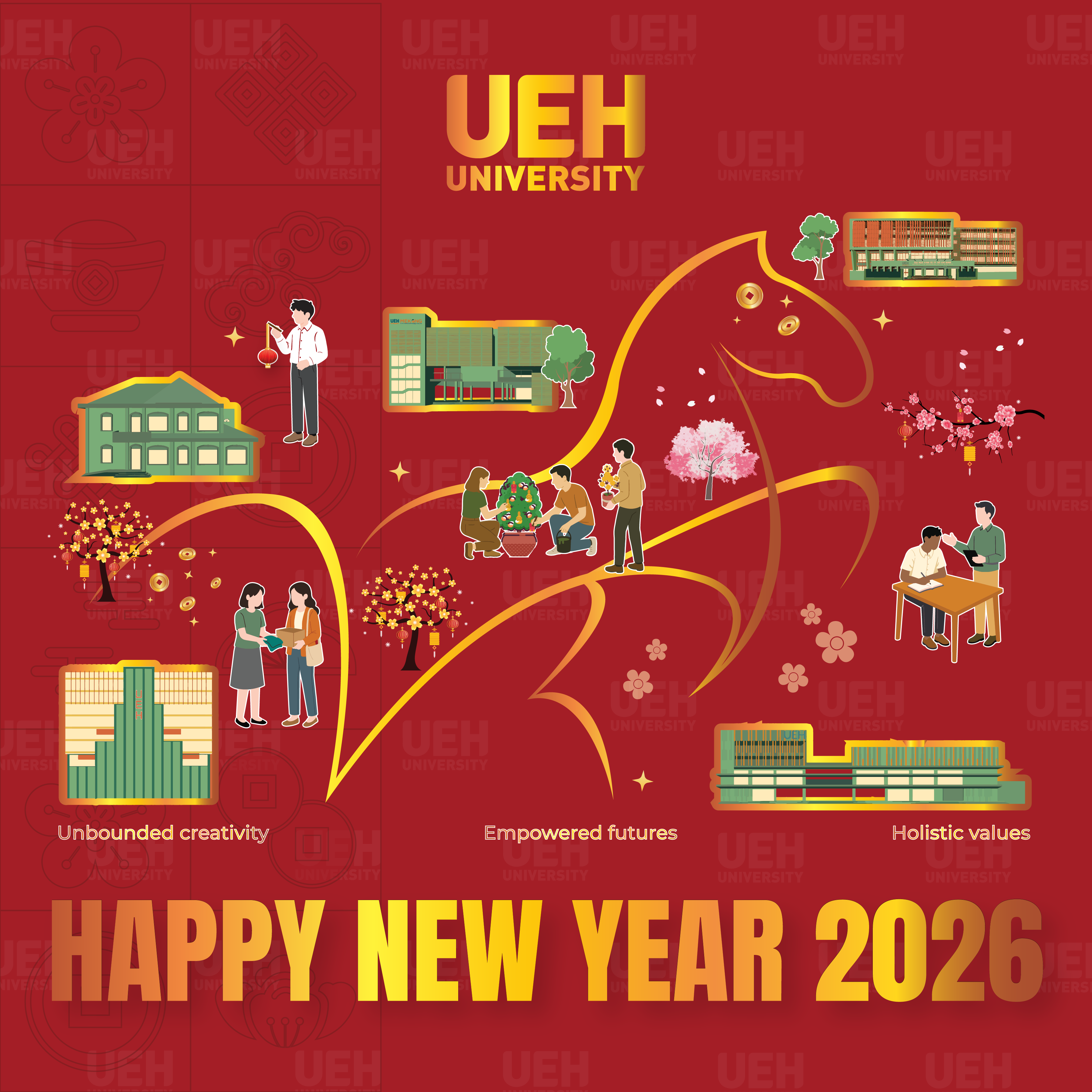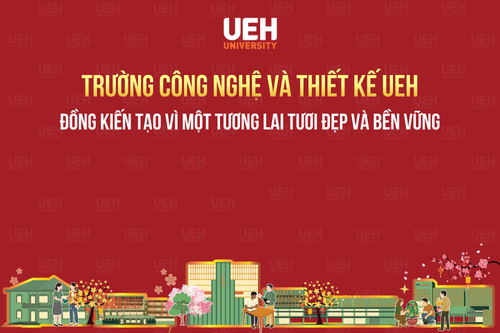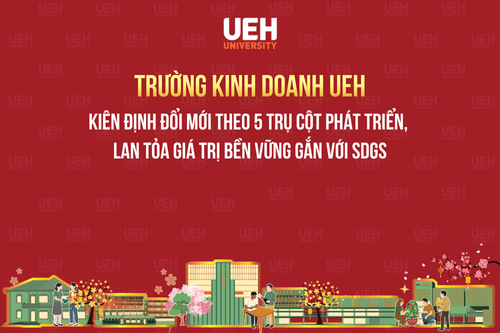
The development of the Dual Education model in Vietnam
20 Sep, 2021
On August 31, 2021, the University of Economics Ho Chi Minh City (UEH), UEH Institute of Tourism cooperated with Agence Universitaire de la Francophonie AUF (France) to organize an international conference with the topic "The development of the Dual Education model" in Vietnam. The event was held online with the participation of prestigious universities domestically and internationally, bringing together hundreds of participants representing academia and business from many countries in the region and the world.
The model of alternate or dual education (“dual education” in English and “formation par alternance” in French) is a new approach, with a rhythmic alternation between theoretical training at university and practical training in the workplace. Typically, the weekly alternating rhythm consists of 2-3 school days and the rest of the time at work. There are also schools in which dual semester is applied, in which each year consists of semesters at school interspersed with at least one semester at the business.
The dual education model is considered as a promising direction and creates a stronger connection between the economic and educational sectors, especially when there is an increasing autonomy in universities, in order to encourage the mobilization of all resources and initiatives to improve training quality to serve the goals of socio-economic growth, in both quantity and quality. This is a key factor in building modern training programs, adapting to the highest requirements of society and the labor market.
%20t%E1%BA%A1i%20Vi%E1%BB%87t%20Nam%20(2).jpg)
The dual education model is considered a promising direction
However, besides the benefits, this model also faces many barriers, such as training costs (paid by enterprises) and the need for national support policies in terms of finance or through subsidies, tax exemptions, and reductions, limited reception capacity of small and medium enterprises, the need to improve internal management processes at both enterprises and schools, and quality control mechanism.
Some critical questions were proposed as follows: Faced with all these opportunities and challenges, can Vietnam learn from the experiences of countries in the world such as Germany, Austria, France, Switzerland, China, and South Korea... to develop this model in Vietnamese universities to ensure the best career opportunities for graduates, especially in the context that Vietnamese universities need to improve their competitiveness, train qualified human resources according to international standards, meeting the growing economic development needs of the country? How will the enterprise's human resource policy benefit from this model of cooperation with universities?
%20t%E1%BA%A1i%20Vi%E1%BB%87t%20Nam%20(4).jpg)
Experts attend the international conference "The development of the dual education model"
In search of answers to these issues, an international conference around the topic "The development of the dual education model" organized by the UEH Institute of Tourism in collaboration with the Agence universitaire de la Francophonie AUF (France) was officially held with a plenary session and a parallel session. The content of the discussion revolved around three main themes:
1. The ability to adjust training programs to meet the needs of the labor market better.
2. The dual education model and legal framework: Opportunities, challenges and practical experiences.
3. Regional and international cooperation in developing dual education model: Sharing practical experiences from private enterprises in the industrial and service sectors.
%20t%E1%BA%A1i%20Vi%E1%BB%87t%20Nam%20(5).jpg)
Prof. Slim Khalbous – General Director of the Agence universitaire de la Francophonie AUF (France) made a speech
At the conference, the experts exchanged and shared experiences to open up opportunities to develop this training model in Vietnam with important contents such as:
- Sharing practical experiences to have a comprehensive view of the current state of cooperation between universities and enterprises through the dual education model, with close coordination between universities and enterprises and promoting contents learned at school and enterprises during the training process.
- Identify the main difficulties and barriers currently affecting the dual education model's ability and quality in current university training programs.
- Identify challenges that need to be addressed to encourage the dual education model to be implemented and replicated in appropriate and effective ways within the AUF network of member schools.
- Identify areas with the potential for rapid development of the dual education model.
- Identify economic and technical partners or major international donors who can support and support the construction of an international cooperation project in this field.
%20t%E1%BA%A1i%20Vi%E1%BB%87t%20Nam%20(6).jpg)
Prof. Jean-Marc Lavest, Director of AUF Asia - Pacific shared at the conference
%20t%E1%BA%A1i%20Vi%E1%BB%87t%20Nam%20(1).jpg)
Expert Laurence Levert of the University of New Caledonia shared
Dr. Nguyen Duc Tri, Director of the UEH Institute of Tourism, shared: “At the dual education conference, the speakers presented breakthrough techniques to change the training path and model of successful engagement between schools and businesses to create a learning society, linking learning with practice, promoting interaction, being sensitive to the news and proficient in practice in the typical conditions of Vietnam. Dual education, transforming the training model from focusing on theory to combining practice, from task-oriented to competency-oriented, from periodical practice to parallel practice.”
The conference was held on the Zoom platform with a Vietnamese translation plenary session. At the same time, it is live-streamed on the fan page of UEH Institute of Tourism: www.facebook.com/uehVDL/ and AUF Asia - Pacific at: https://www.facebook.com/AUF.asie.pacifique.
News, Photo: UEH Institute of Tourism, Department of Marketing and Communication.
Newspapers reported:
1. Sinh vien Viet Nam Newspaper: Dual education model at universities faces many barriers
2. Nguoi Lao Dong Newspaper: It is necessary to design an appropriate program for the model of “Dual education”
3. Nhan Dan Newspaper: Dual education model creates a strong connection between training institutions and enterprises
.jpg)










